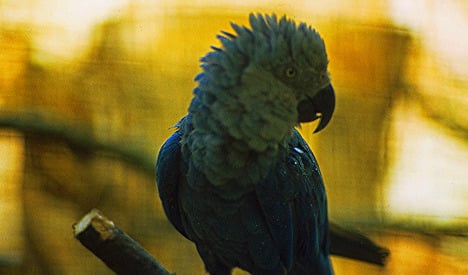The two spix's macaws — among only 92 of the birds known to exist worldwide – were shipped to Sao Paulo, a spokesman for the Chico Mendes environmental institute for Biodiversity Conservation (ICMBio) said.
"They will remain isolated for a fortnight on the Sao Paulo coast before heading to a scientific breeding center in the same state," institute spokesman Joao Freire said.
"They are brother and sister, 11 months old and not yet sexually mature. The intention is to have them breed later with Brazil's 11 ararinhas (spix's macaws), said Freire.
He added that once global numbers rose to 200 "their reintroduction into nature will commence."
The macaw is one of Earth's most endangered species, with trapping having contributed to numbers plummeting over the past three decades. The last one spotted in the wild was seen in 2000.
The two main characters of the successful "Rio" films – Blu and Jewel – are spix's macaws.
Originally hailing from the Curaca region in the notheastern state of Bahia the bird has unusual feet with two claws turned forwards and two backwards.
It feeds on seeds and fruit and uses its beak to help it climb trees.
In December, ICMbio announced the first births in 14 years of two macaws at the Sao Paulo breeding center.



 Please whitelist us to continue reading.
Please whitelist us to continue reading.
Member comments